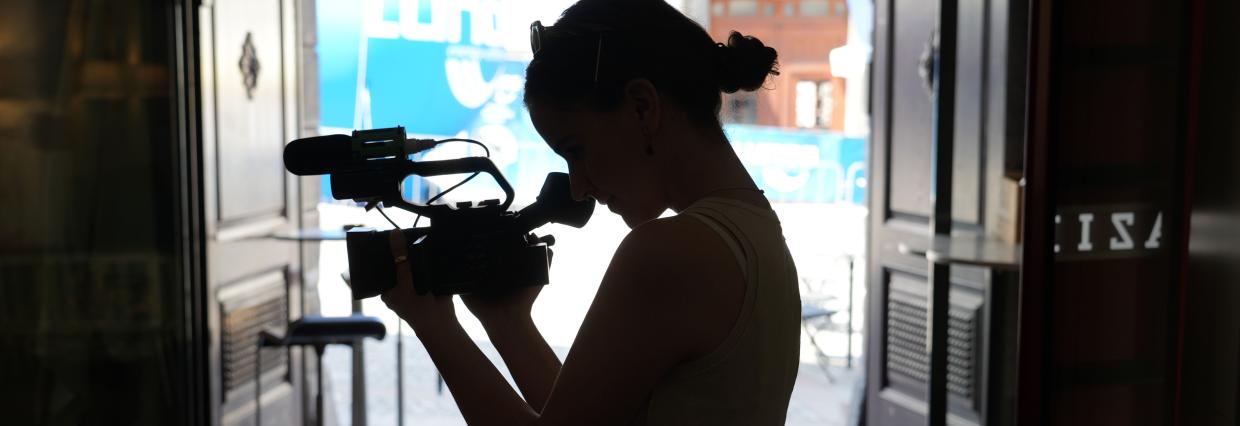
Summer School of Visual Ethnography
Published on: July 9, 2025These days, the Summer School of Visual Ethnography is taking place at ZRC SAZU. The Summer School is co-organised by the Audiovisual Laboratory of the Institute of Slovenian Ethnology ZRC SAZU and the Audiovisual Centre of the Department of Ethnology and Cultural Anthropology at the Faculty of Arts, University of Ljubljana. The Summer School was established in 1997 in Nova Gorica, on the initiative and first led by Dr Naško Križnar. "The idea behind the school is grounded in the principles of contemporary visual ethnography, which sees documentary filmmaking as a complex and heterogeneous activity involving several simultaneous and diverse processes. The filmmaker documents, explores, and learns about a particular event at the same time, aiming to shape the gathered material into a narrative film representation," the organisers noted.
The aim of the Summer School is to introduce students to the world of visual ethnography and to empower them to confidently use the camera and film independently, said Manca Filak, a researcher at the Institute of Slovenian Ethnology ZRC SAZU and one of this year's mentors. Alongside colleagues (Associate Professor Dr Etami Borjan, a film scholar from the Faculty of Humanities and Social Sciences in Zagreb; Dr Andrej Kocan, ethnomusicologist, documentary filmmaker and sound designer; and Assistant Professor Dr Ana Sarah Lunaček, Professor of Visual Anthropology), she will mentor four female and one male student of ethnology and cultural anthropology, both at undergraduate and master's level, guiding them through a nine-day creative process.
The participants first engaged in various filming and editing exercises, discussed ethical considerations in filming, and learnt about the history of ethnographic film. They also went into the field and filmed a short report at the Ljubljana flea market on Sunday. In the final days of the Summer School (which runs until Sunday, 13 July), they will focus on producing their individual projects – each will film a short film lasting up to 15 minutes. They have chosen a wide range of topics: one participant will follow the creative process of developing a contemporary dance choreography; another will present the experiences of foreigners living in Ljubljana through filmed interviews; a third will follow the daily routine of a mother with two children; and the fourth will portray a street musician. According to Filak – herself (co-)author of several ethnographic films, including the feature-length Lukomir, My Home – they will be given a day and a half for filming and two full days for editing.
The mentors hope that the participants of the Summer School of Visual Ethnography will continue to deepen the knowledge they have gained, and that the short films they produce will serve as a kind of trailer for longer and more in-depth research using the camera. They are also pleased to welcome returning participants – this year, one student who previously attended the school has returned. As Filak explains, each edition of the Summer School is shaped by its lead mentor, meaning the programme varies from year to year, avoiding repetition.
Photograph: Gašper Raušl